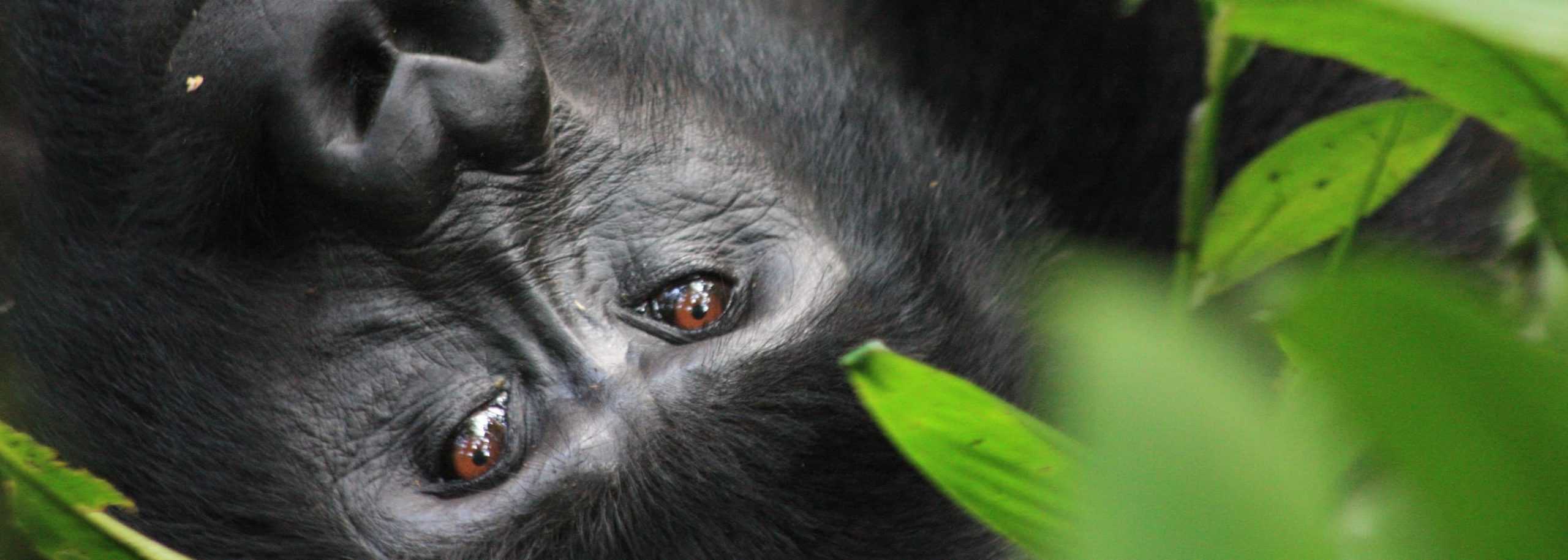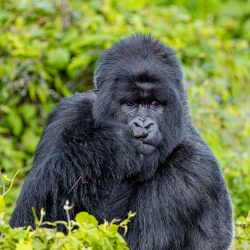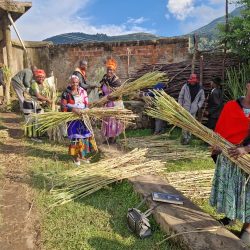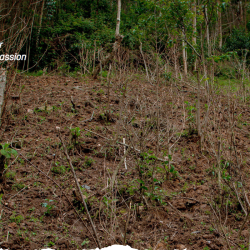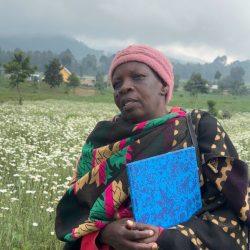Echoes in the Wild: Tales from a Legendary Mountain Gorilla Ranger
Blog | 31/07/25
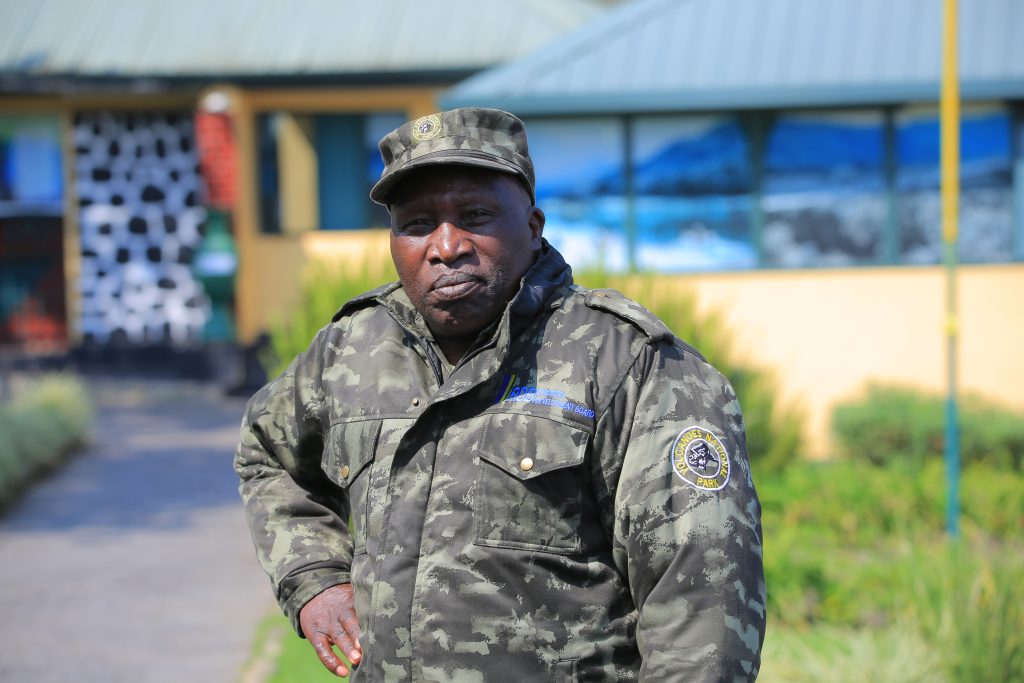
“I gazed at Silverback Munani helplessly, his unexpected demise put me in a melancholy mood for months. I got worried and anxious about the fate of Agashya group now that their dominant Silverback was no more,” Ranger Francois Bizimana says, as he narrates about his saddest day as a Ranger.
Francois Bigirimana is a household name, when it comes to mountain gorilla conservation in Rwanda’s Volcanoes National Park. For the past 40 years, Francois Bigirimana has been a sought-after mountain gorilla ranger – guide, a responsibility he is proud of! Francois has made mountain gorilla conservation his passion and day-to-day goal and his is a thrilling story!
Conserving in the 80s
Narrating the genesis of his mountain gorilla conservation journey in the 80s, Francois can’t help referring to current ranger work as “very lenient and convenient.” Bigirimana started his conservation journey at 24 in 1982 as a tracker for the “mountain gorilla project” which was later to become IGCP. He was tasked to monitor a gorilla group known as nine along with one additional colleague, as opposed to today where at least six rangers are assigned to one group. “Then habituated mountain gorilla groups in the Volcanoes Park were named according to the number of individuals the family had”, recalls Francois.
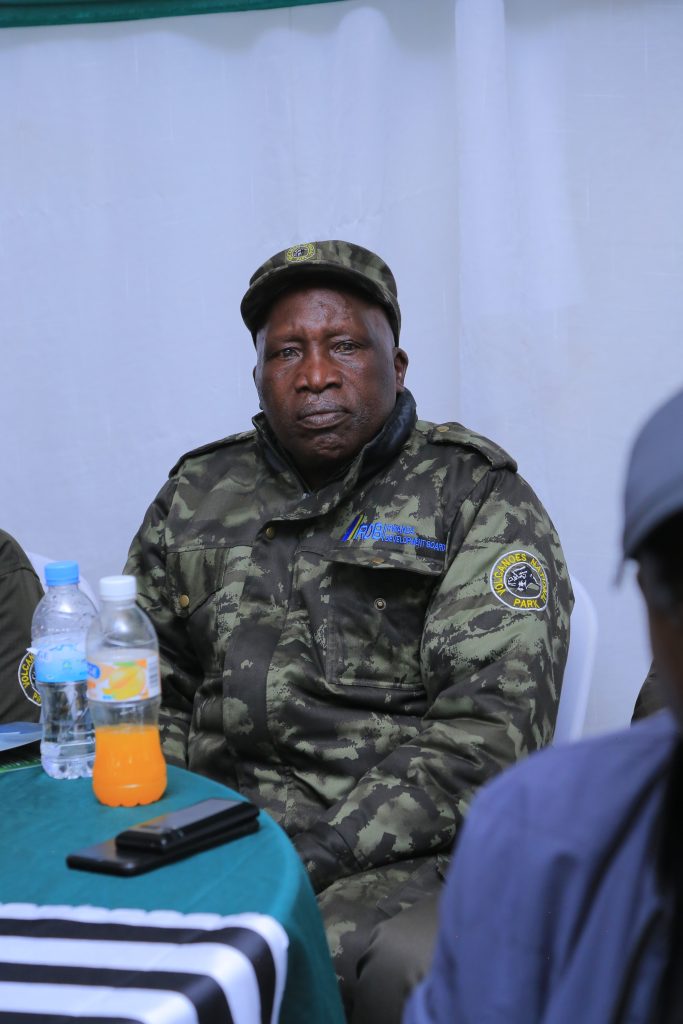
At the time, Volcanoes National Park only had four habituated mountain gorilla groups therefore protecting them daily, regardless of the harsh field conditions was important. “I worked for 4 years daily without resting even on a weekend! I was always in the forest protecting these beautiful species,” recalls Francois.
According to Francois, the 1980s were dangerous years for the mountain gorillas, poaching was high and not much value was attached to the primates and very few conservation organizations supported gorilla monitoring. Mountain gorilla babies were poached and sold off to the highest bidders who would take them home as pets!
Conserving in the 1980s meant spending days and often nights in the forest to ensure that the mountain gorillas are safe. “Especially when my group crossed over to Virunga side _ in DRC, I had to spend the night in the forest to ensure their safety,” narrates Francois.
Conservation in the 1980s also posed a huge infrastructure challenge, ranging from rough murram roads, lack of internet or phone signal to trekking long distances to monitor the mountain gorillas. Volcanoes National Park had no vehicles to transport rangers to the park boundaries like it is now. “We had one rotational house at the park-edge, and we could spend our days and nights there,” says Francois.
In 1985, Francois was officially hired by Volcanoes National Park, as a full-time ranger, a task that came with challenges. “Rangers bought their own food supplies and field equipment. On several occasions I ventured the misty cold forest without warm clothing, I could barely afford them,” says Francois. Despite the challenges, the legendary ranger pressed on, giving up was never an option!
A Ranger’s saddest day!
Francois recalls his saddest day as a ranger, like it was just yesterday! It was in 2003 when he was out in the field guiding tourists during a visit to Agashya group! For the past few days, Agashya’s dominant Silverback Munani seemed weak and was not feeding well but little did Francois know that the Silverback would die! Well on that fateful day, Silverback Munani died while Francois helplessly watched. This is an ordeal that has not left his mind until today. “Munani was a big, strong and peaceful silverback! The Silverback’s peaceful nature and the way he protected his family had won him a special place in my heart,” says Francois.
Francois recalls being charged at by an aggressive buffalo while on duty, the experience was scary but not as sad as the day Silverback Munani died!
Your Favorite Guide
Francois has done a great job guiding hundreds of tourists to the misty forest to see mountain gorillas! This perhaps explains why after retirement in 2021, Francois was re-hired by Volcanoes National Park months later on a private arrangement, as a consultant guide. “Guests would often call in requesting for Francois to guide their mountain gorilla visit and when we broke the news of his retirement, some would cancel their booking,” says Francis Baingana, the Tourism Warden at Volcanoes National Park.
Guests named Francois the best tour guide ever! “Francois eats, breathes and reveres the impressive gorillas of Volcanoes National Park in Rwanda. Francois does everything with wild enthusiasm, whether it is his perfected gorilla grunts, chest-thumping leaps in the air to stripping bark off a sapling with his teeth to teach us gorilla habitat and safety,” quotes Gwen Books, an International Luxury Travel Blog.
Francois’s guests range from unknown tourists to famous names like Rwanda’s President HE Paul Kagame, whom he has guided at least twice. “I was thrilled by the fact that HE the president of Rwanda recognized me on his second visit to the gorillas. He hugged me and hailed me for the great contribution towards mountain gorilla conservation,” says Francois.
Francois’s guest list includes Mswati II, former King of Eswatini, Bill Gates an American businessman and philanthropist, Ellen DeGeneres an American Comedian and Actress, the list goes on. All the guests that Francois has guided commend his passion and commitment to preserving nature.
Speaking Gorilla Language!
Francois has mastered gorilla vocalization, one of the reasons he is regarded as the best guide ever. He can tell when the Silverback is receptive to visitors or when gorillas are irritated! He mimics the sounds gorillas make when satisfied or when they’re upset. “At times gorillas make a sound when they are unhappy though it is unusual to get irritated by visitors,” says Francois. He recalls scenarios when gorillas charged at visitors but he used his experience to calm the primates down. “In such cases, I would request the guests to sit down as a sign of respect to the gorillas and I would then make a re-assuring gorilla vocalization communicating to the gorillas that we mean well,” says Francois.
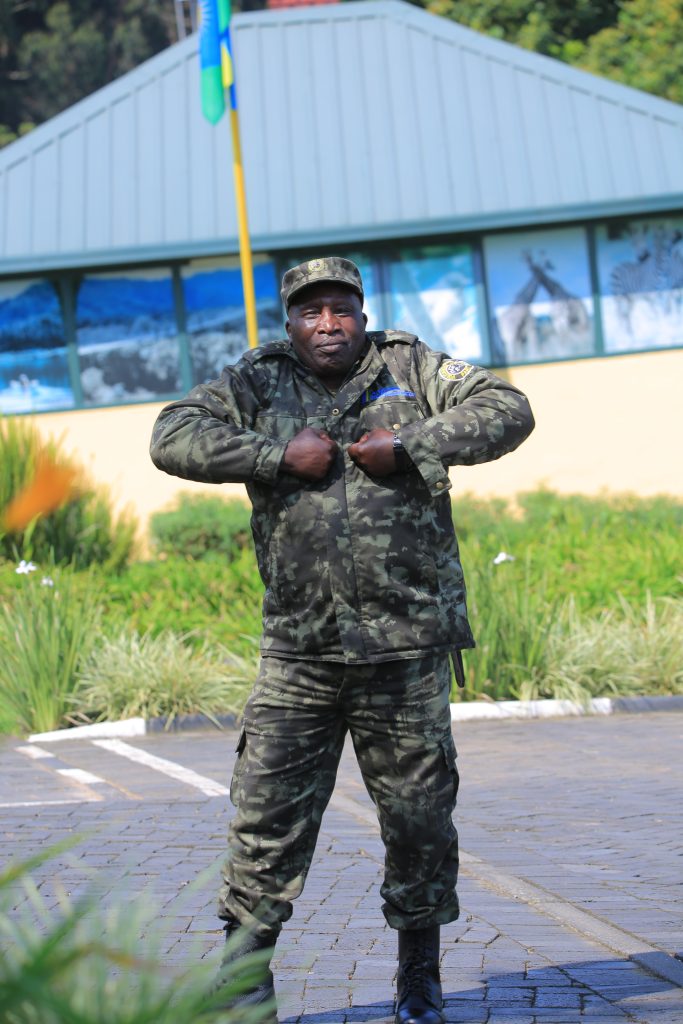
The Rewards of Conservation
Francois boasts of at least 100 certificates of best ranger though his biggest achievement so far is meeting people from all corners of the world. Francois was also honored to name a baby gorilla. On 30th October 2019 Francois named a male baby gorilla born to adult female Gukunda from Sabyinyo group. Francois named the baby Izabukuru which translates to “Elderhood.” Now a juvenile, Zabukuru continues to grow and thrive in Sabyinyo group.
Through earnings from his ranger job, the 69-year-old constructed a beautiful residential house, purchased land and bought a personal vehicle – a prado to simplify his transport. Francois has effortlessly catered for his domestic needs including school fees for his 9 children and health insurance.
Asked about his job, this is what Francois says, “Being a ranger is a noble call that saves nature and the environment. It is a great privilege. It is a very good job compared to others, no job comes easy but tracking for a few hours and going home by 2:00pm is not bad at all.” During his 40 years of conservation, Francois says he has learned a lot, his lessons include respecting nature, “Nature and humanity complete each other. One can’t exist without the other”, says Francois. Francois says he also learnt that patience, commitment and honesty are key components to earning trust in any work environment.
Speaking of Francois’ conservation journey, Volcanoes National Park Warden- Prosper Uwingeli says, “Francois has set the pace for mountain gorilla conservation. His commitment is a testament that if everyone plays their part well and consistently, mountain gorillas will thrive in their habitat and the threats like poaching will immensely reduce.”
